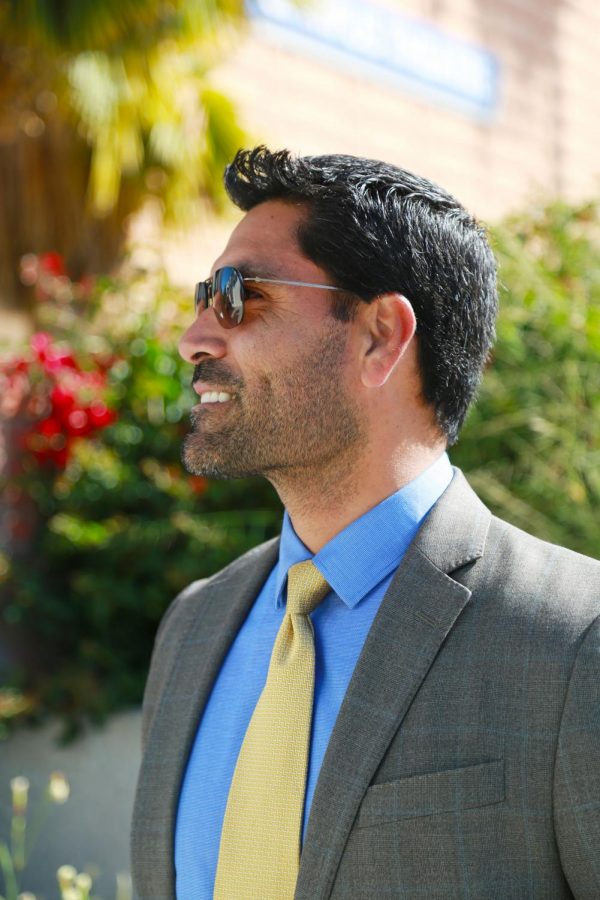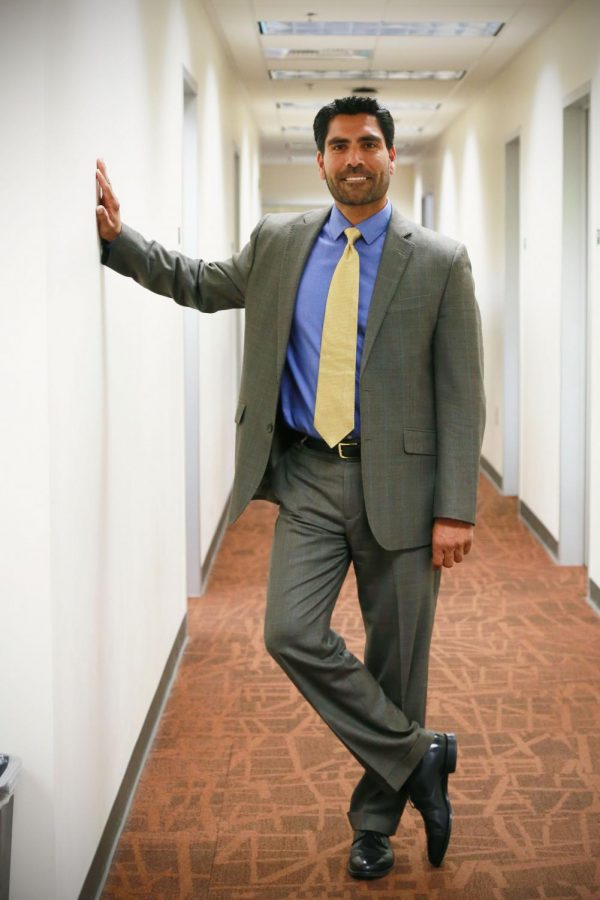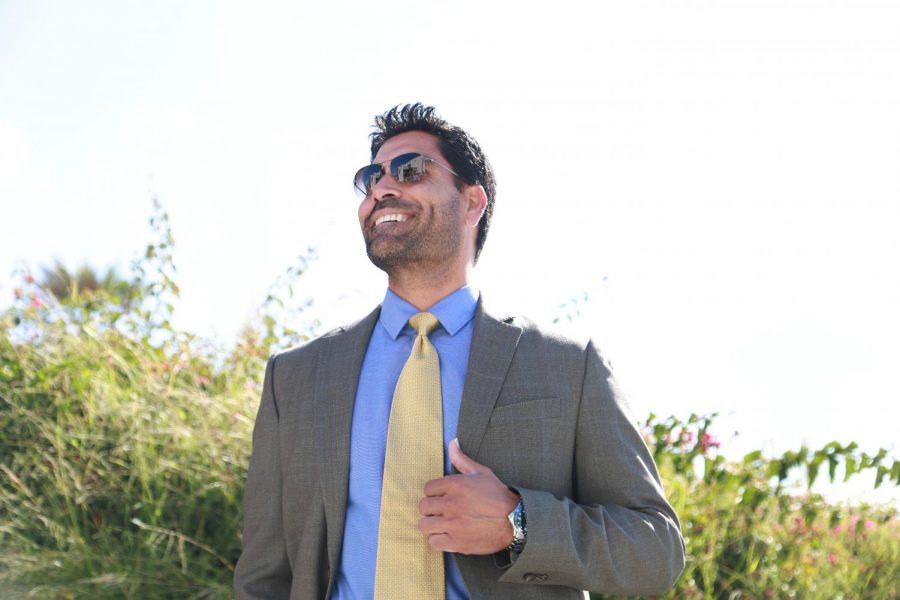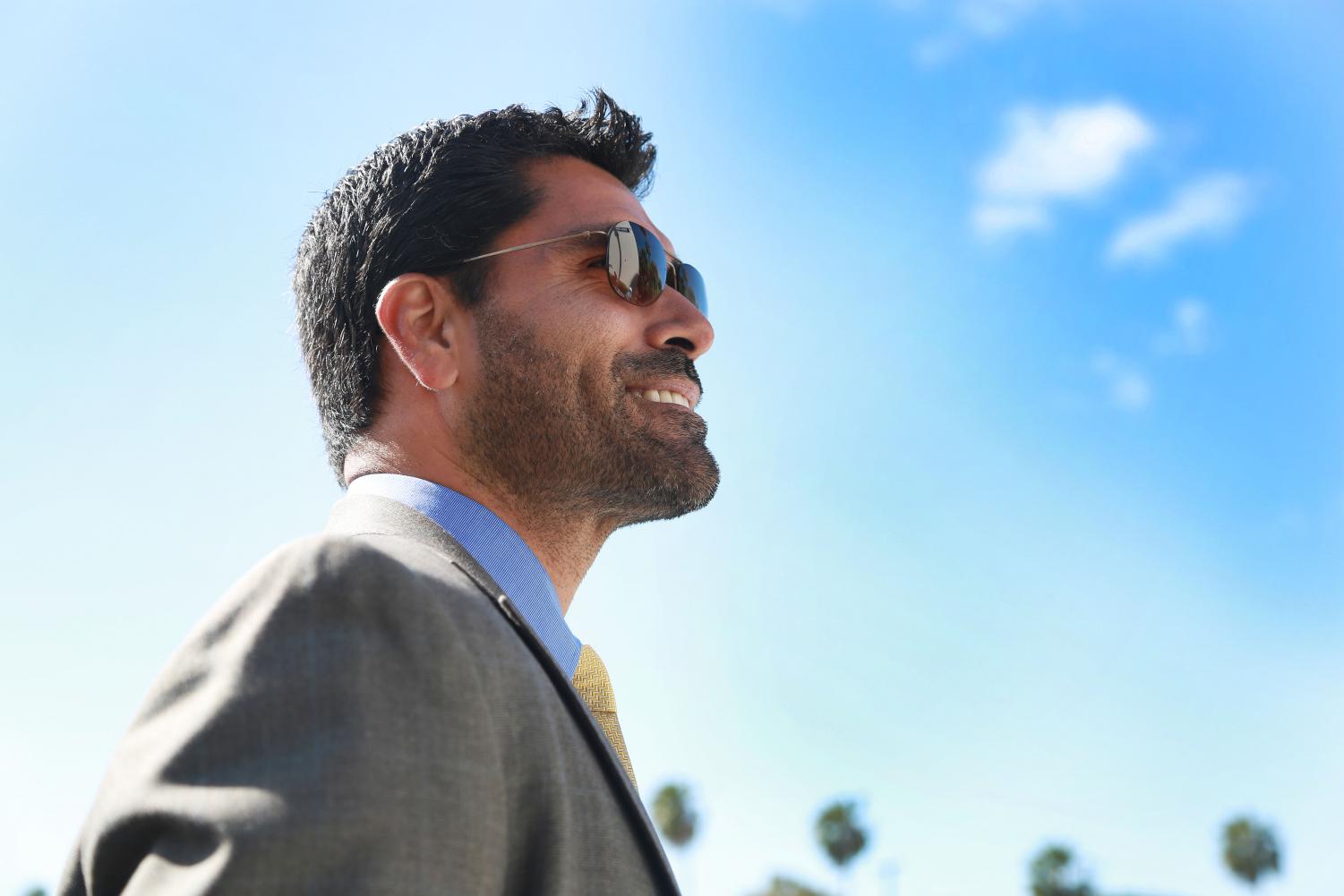Q&A with political science professor who fled a civil war when he was 14
Warrior Life sits down with political science professor Eduardo Munoz to talk about the time he fled Nicaragua’s civil war in search of a better life in the U.S.
June 5, 2018

Professor of political science at El Camino College, Eduardo Munoz, 47, fled Nicaragua at 14 in search for a better life. Back when he was a college student, he studied as a pre-med student. He decided to transition to a political science major when he realized the lack of individuals at his school were aware of the political situations in countries outside of the U.S., especially, about the civil war that took place in Nicaragua. Eduardo experienced the nation had transitioned into a nation under communist rule. Below is a Q&A that delves into his experience there and then his decision to immigrate to the United States.
Editor-in-Chief (EIC): Tell me a little about the civil war you experienced?
Eduardo: “In some ways, I think it was political indoctrination so people understood the government, the revolution, the goals. They were drafting people at a young age.”
EIC: What are some particular things you remember during this experience?
Eduardo: “During the war, you’d have curfews during 1978 and 1979. The next morning, you would go out and see the bullet holes (and) the walls of blood. You could see literally through the keyhole (from inside) your house the tanks and the soldiers on the street, and the airplane bombs dropping and stuff.”
Eduardo elaborates about losing someone during this time.
Eduardo: “My grandfather — (a) rocket fell next to his house and he was in the hospital for three days and passed away. It was hard.”
EIC: How did you come to decide to move to the United States and what was the transition like?
Eduardo: “…We couldn’t all come at the same time. My dad, you know, was a law professor. So he couldn’t just pick up and go… my brother came a year earlier (than I) and he was living with an uncle, my mom’s brother. And then I would go to Texas and live with my dad’s brother for a little while before my parents were able to come. So it was hard, because the reality was I didn’t know if I was ever going to see them again…”
EIC: How many years after you came did your parents come?
Eduardo: “A couple years after. Yeah, we could talk on the phone and stuff, but I mean you never knew the times, the situation, as the country was fighting a war” … “I used to have nightmares of the war. You’d hear the airplanes dropping bombs. The bullets, the machine guns, and stuff.”
EIC: What was it like growing up the rest of your life in the United States?
Eduardo: “I knew I had come here for a reason and that was to get an education. I would have opportunity to do that freely in the sense that if I wanted to take a class on Marxism or philosophy, I was free to do that. I would have the choice to pick and choose. Whereas if I had stayed (in Nicaragua), that choice wouldn’t have been given to me, you know.”…”I played baseball. I played sports.”
EIC: What was it like going to high school in the United States?
Eduardo: “It was a change initially because in Texas, the town where my uncle lived — nobody spoke English except my Uncle and his wife. She was the Spanish teacher at the high school. And the town (Carthage, Texas) was so small that the high school, middle school and elementary school were all together. That’s how small it was. But I think it helped me pick up the language. Because I was forced to be immersed fully.”
EIC: Are you an American citizen? If so, when did you become one and what was that experience like?
Eduardo: “I am now. I became one in 2003. That was touching. I mean, I cried, in all honesty. Because after 20 years it was a culmination of something big. I remember it was at the Pomona Fair Grounds back then and there were thousands of people and you raised your right hand swearing the constitution. The whole ambiance. Wow, I finally got here. I finally became a citizen.”
EIC: And what did that mean to you? What went through your head in those moments?
Eduardo: “To me, becoming a citizen in many ways meant I had made it…There used to be a show in the 1980s, it was called “MacGyver” and the opening scene of the show, they showed an American passport. So that was around the time after I came (to the United States). And I used to always say ‘one day, one day, I’m going to get that passport’. And about 20 years later, I did. It was a great feeling. And again, it had been a challenge, fear, leaving family behind, leaving your country, but when you got to that point… yeah, I cried. It was very emotional. I was 33 then when I became a citizen. And 2004 was (the) first election where I could vote.”
EIC: And you have a son, is that correct?
Eduardo: “I have a son who is 14 now. It’s interesting…that’s the age that I came (to the United States). The challenges of growing up, the friends, the school, the environment and the experiences that he’s had have been completely di erent. I haven’t gone back to Nicaragua. I want to go back…I want to take him (there)…so he can get a deeper sense of our roots.”
EIC: Have you talked about your experience with him?
Eduardo: “He knows. Just a little bit. When we get together as a family with my parents, sometimes we talk a little bit about that, too. So I think in the near future, we’re going to make that trip.”
EIC: What is your opinion on the current situation of the United States regarding immigration?
Eduardo: “This country was made up of immigrants. Immigrants contribute to the very fabric of this society in so many ways. But sometimes the bad apples, because there are good apples and bad apples in everything, come to the lime light and is exploited in the sense. But I think immigrants make a very good contribution to this society. People want to come to America. They want to have an opportunity. They want to contribute…If we think we have it tough here, in other countries, it’s even tougher. It is sad. It is very sad that the government has not been very successful in creating an immigration policy in the last decade and a half that will serve and better our society. There’s a lot of people who came here illegally, and it’s not like you’re going to give them a free pass, but there needs to be a immigration reform. You can’t just start deporting people. And it’s a failure on the part of the government.”
EIC: What kind of solution would you propose?
Eduardo: “There are people who have fears… if you have people. If you have have people who have been living in this country, who have been working, you have people serving in the military that there needs to be a process that will allow them to become citizens, become legal, even if they have to get at the back of the line, even if they have to pay a fine. It’s, again, politicians, they want their support, they go to their base of the party and that’s what makes the differences between Democrats and Republicans, they can’t agree.”

TREE TIPS FOR THE NEW POLITICALLY ENGAGED STUDENT:
1) Ask questions
“Don’t be afraid to ask questions. Come to faculty, come to professors and ask. Ask questions and gather information as you take a variety of courses (about politics),” Eduardo says.
2) Don’t become disillusioned
“Try not to get disillusioned because change doesn’t happen over night. You have to put in a lot of work. It’s an effort. Sometimes you win, sometimes you lose. Sometimes the candidate you voted for will win the election, sometimes they won’t. But you know you’ll have another chance. Down the road, there will be another election,” Eduardo says.
3) Get to know people
“Try to understand as best you can to get a well rounded knowledge of what it is that drives you (politically). The more you talk to people, the more you are going to enhance that,” Eduardo says.


